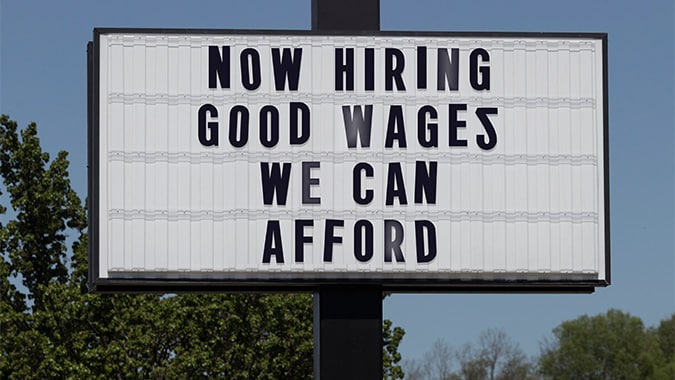Now that New Jersey has its $15 minimum wage, Gov. Phil Murphy is hinting at raising it higher before leaving office.
But NJBIA Chief Government Affairs Officer Christopher Emigholz said that if the belief is New Jersey businesses can handle another minimum wage increase, that’s exactly why yet another government mandate isn’t needed.
“Let’s face it, it was the free market which led to more entry level positions exceeding the $1 dollar per year increase over the past five years,” Emigholz said. “Given the aftermath of COVID and workplace demands, many businesses were offering more than $15 an hour well before they were required to.
“That said, we can’t ignore the vulnerability of smaller businesses, where profit margins grow slimmer and slimmer due to increased inflation and other cost-bearing mandates that apply to them here in New Jersey more than any other state in the nation.
“So why not just let the free market do its job, as it has been proven to be the best, most natural determinant of wages?”
NJBIA’s 2024 Business Outlook Survey showed both increases in wages and a struggle to attain profits.
According to the survey, 34% of businesses increased pay for employees by 5% or more in 2023.
Three years ago, during the height of the pandemic, that number was only 12%.
And despite uncertain economic outlooks nationally and in New Jersey, businesses expect that upward trend to continue in 2024, with 21% saying they’ll increase wages more than 5%.”
However, only 32% of respondents reported profits for the year. At the same time, 44% reported a loss.
The 2024 outlook for profits is also lukewarm. Only 37% believe they will make a profit, compared to 28% who anticipate they won’t. That net positive of 9% is the lowest outlook for profits since 2012.
“You need not look any further than the recent media stories showing the small businesses that closed locally or throughout the state in 2023 to understand many businesses are vulnerable,” Emigholz said. “Certainly, we hear their stories every day.”
Emigholz also noted that New Jersey’s constitution specifies that the minimum wage be adjusted annually based on the Consumer Price Index, which will likely lead to increases in the minimum wage.
“That shouldn’t be dismissed, nor should the state constitution be used as a toy to play with or to score political points,” Emigholz said.
“We have always said businesses will pay what they can afford. We should also recognize that a business owner knows what he or she can afford more than anyone in Trenton does.
“So, now that we’ve reached $15 an hour, we encourage our policymakers to allow the free market to do its work, rather than randomly setting a number during a time of economic uncertainty, and without any analysis of inflation’s impact on business.”




